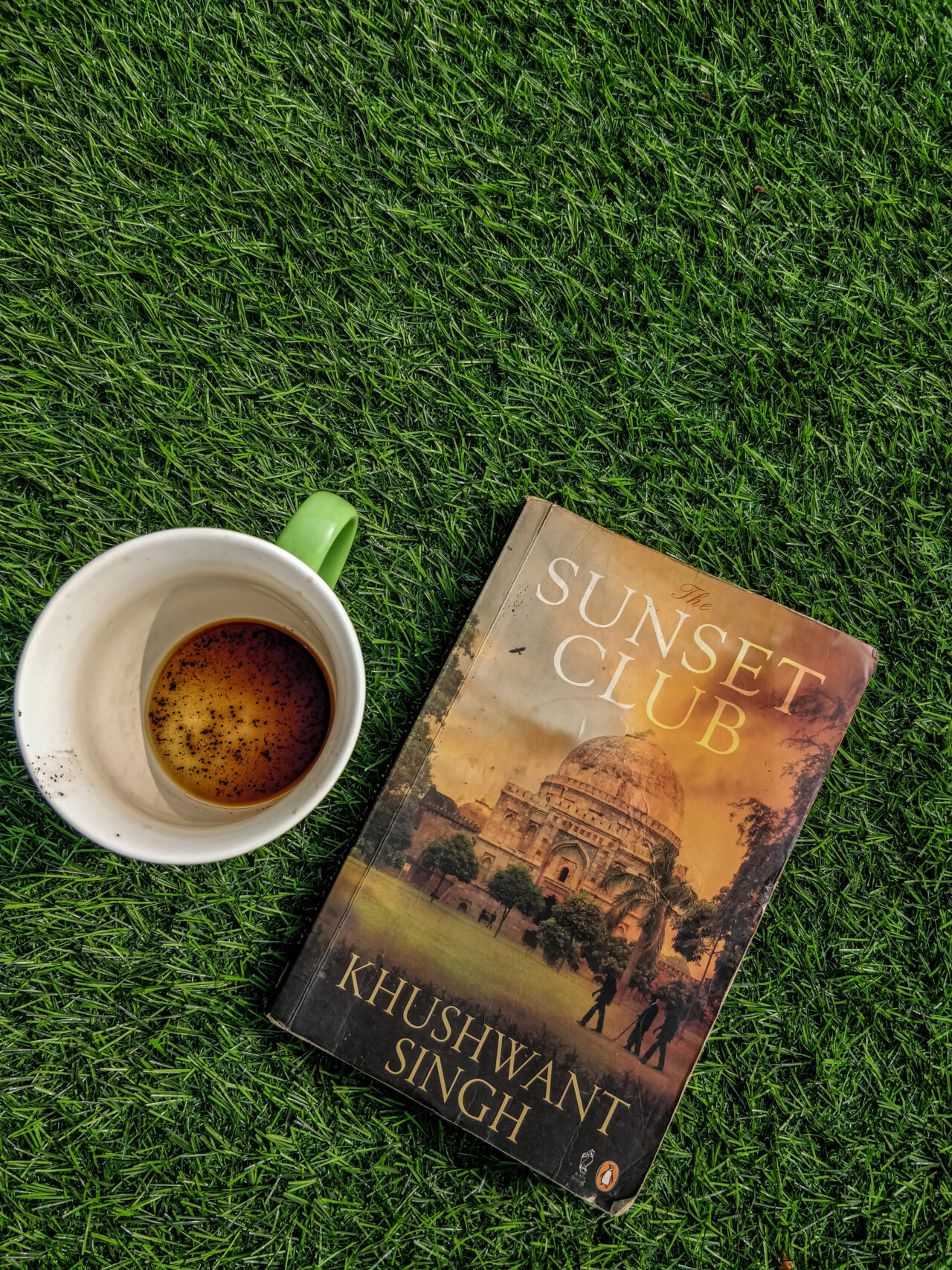A group of three friends- A Sikh, a Hindu, and a Muslim- in their 80s meet every day in a Delhi park. Every day. This breeze of a read is a monthly journal of their meetings where they discuss their digestion, politics, and spicy details of their youth.
Show, don’t tell. Kushwant Singh’s The sunset club however does not follow the same line of thought. The book, even though written in a narrator’s voice, tries to run through the storyline by telling details that appear as if the book is talking more to outsiders who have no clue about India or its inhabitants. Needlessly pandering to an audience for whom a lot of it might sound as if the writer thinks pretty low of them.
Apart from this, I didn’t have any other gripe with the style of the book. This is a breezy 200-odd page short book that takes you through the life and times of three elderly gentlemen from Delhi. They are hard-coded north Indians who are reflective of the kind you’d come across if you were staying put in Delhi or around. The three characters are caricatured versions of a north Indian old man who are at the fag end of their lives and how most of their time is spent reminiscing about their younger selves, their secrets and life lived behind the curtains. They share the tiniest details about their day-to-day and yet show duality when meeting each other and their own families.
Even though the three characters are distinct with varied backgrounds, political and religious views, their old age draws the line of resemblance in their daily meetings at the Lodhi Gardens. This daily meeting helps them vent their frustrations out and gives them reasons to laugh, fight and get nostalgic. Their individual identities are a big factor in what they talk about, what they fight about, and what they steer clear from.
As a comparatively younger reader, it is fascinating to see the accounts of these gentlemen painting their glorious youth through this story. Spanning the 12 months of the year, each month brings with it a new topic alongside gradual changes in the weather and more nostalgia for each character. While a Boota Singh is a colorful portrayal of an outlandish Sardar who gravitates all conversation towards his sexual adventures, there is the more reserved Sharma who tries to bring forth the traditional Indian to the fore. In the midst is Baig who enjoys the fun conversation but always has his guards on.
The book is a reminder of how every journey has an end but a life filled with pleasant memories is what helps us to avoid gloom in old age. Kushwant Singh’s description of the changing Delhi weather is beautiful and you do get to bask in the winter sun of Delhi as much as feel the heat during summers through it all.
This is a great travel read that’s light, fun in parts, and easily digestible. I’d highly recommend this also as a read in between some heavy reading.
